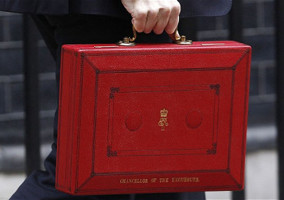Over 600 charities have signed a letter to the prime minister calling for an emergency support fund for the sector.
A social media campaign, #RightNow, launched on Monday and encourages charities to share details of what they are doing.
It has been organised by the #NeverMoreNeeded coalition, which had already proposed an emergency fund in its pre-budget submission to the chancellor last month.
Today's letter says: “They [charities] are stepping up because the need has never been greater, but they are doing so while staring at an estimated £10bn hole in their income. Right now, many charities are eating into their reserves, selling whatever assets they have and making staff redundant.
“That means tomorrow they won’t be able to fund life-saving research, feed struggling families, bring hope to people most at risk isolating at home, tackle existing inequalities made worse by this pandemic. People and communities will go without vital support.”
The campaign has not specified how large it believes the fund should be. A spokesperson said: “We would welcome a detailed conversation with the government to consider the scale of support that can make a difference and the most effective way of distributing it so those charities who most need it can access it quickly and efficiently.”
A Treasury spokesperson directed Civil Society News’ question about whether it was aware of the campaign to the Department for Digital, Culture, Media and Sport.
‘We’re on the brink’
As a whole the sector faces a £10bn gap between the amount of income it expects to have and the demand on services, according to analysis from Pro Bono Economics.
However, the drop in income has not been evenly spread, with charities that rely on trading income and fundraising events particularly hard hit.
Yesterday Furness Mental Health warned that it was “on the brink of collapse” and urgently needs to raise £25,000 to cover its basic running costs for next year.
In an email appealing for help, David Ralph, chair, said: “We were closed to all onsite activities due to the lockdown. That means since February 2020 our self-generated income dropped to zero and our grants income, which is restricted/ring-fenced, has dropped to £509.61, but the demand on our services has increased substantially.
"We’ve had no support from any government grant schemes.”
It has also seen its costs increase. It now needs to buy personal protective equipment (PPE) and its insurance renewal rate is 30% higher than last year.
He adds that the local council has turned down its applications for business support grants.
Crisis lasting longer than expected
Last April the government made £750m available to charities via various different pots to support the sector through the pandemic.
At the time charities warned that this was less than the projected funding gaps. Most of this money has now been distributed,, but charities are still experiencing disruption to their normal methods of income generation.
Vicky Browning, chief executive of ACEVO, said: “Right now, millions of people and thousands of charities are doing everything they can to tackle the urgent problems we face. At the same time, those same organisations are looking to the future and trying to ensure they can continue to be there in the tough years of recovery ahead. We have seen huge generosity from the British public and welcome initial support from the government in April last year.
“However, with the acute phase of the crisis lasting longer than many initially predicted, we are asking the government to step in right now and make sure charities can continue their vital work.”
Related articles












